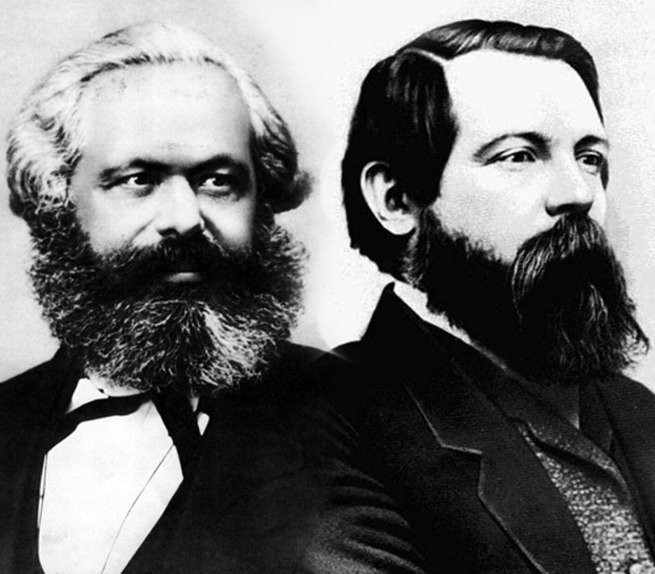
Main Difference
The main difference between Marxism and Communism is that the Marxism is a economic and sociopolitical worldview based on the works of Karl Marx and Communism is a socialist political movement and ideology
-
Marxism
Marxism is a method of socioeconomic analysis that views class relations and social conflict using a materialist interpretation of historical development and takes a dialectical view of social transformation. It originates from the works of 19th-century German philosophers Karl Marx and Friedrich Engels.
Marxism uses a methodology, now known as historical materialism, to analyze and critique the development of class society and especially of capitalism as well as the role of class struggles in systemic economic, social, and political change. According to Marxist theory, in capitalist societies, class conflict arises due to contradictions between the material interests of the oppressed and exploited proletariat—a class of wage labourers employed to produce goods and services—and the bourgeoisie—the ruling class that owns the means of production and extracts its wealth through appropriation of the surplus product produced by the proletariat in the form of profit.
This class struggle that is commonly expressed as the revolt of a society’s productive forces against its relations of production, results in a period of short-term crises as the bourgeoisie struggle to manage the intensifying alienation of labor experienced by the proletariat, albeit with varying degrees of class consciousness. In periods of deep crisis, the resistance of the oppressed can culminate in a proletarian revolution which, if victorious, leads to the establishment of socialism—a socioeconomic system based on social ownership of the means of production, distribution based on one’s contribution and production organized directly for use. As the productive forces continued to advance, Marx hypothesized that socialism would ultimately be transformed into a communist society: a classless, stateless, humane society based on common ownership and the underlying principle: “From each according to his ability, to each according to his needs”.
Marxism has developed into many different branches and schools of thought, with the result that there is now no single definitive Marxist theory. Different Marxian schools place a greater emphasis on certain aspects of classical Marxism while rejecting or modifying other aspects. Many schools of thought have sought to combine Marxian concepts and non-Marxian concepts, which has then led to contradictory conclusions. However, lately there is movement toward the recognition that historical materialism and dialectical materialism remains the fundamental aspect of all Marxist schools of thought. Marxism has had a profound impact on global academia and has influenced many fields such as archaeology, anthropology, media studies, science studies, political science, theater, history, sociology, art history and theory, cultural studies, education, economics, ethics, criminology, geography, literary criticism, aesthetics, film theory, critical psychology and philosophy.
-
Communism
In political and social sciences, communism (from Latin communis, “common, universal”) is the philosophical, social, political, and economic ideology and movement whose ultimate goal is the establishment of the communist society, which is a socioeconomic order structured upon the common ownership of the means of production and the absence of social classes, money, and the state.Communism includes a variety of schools of thought, which broadly include Marxism and anarchism (anarcho-communism), as well as the political ideologies grouped around both. All of these share the analysis that the current order of society stems from its economic system, capitalism; that in this system there are two major social classes; that conflict between these two classes is the root of all problems in society; and that this situation will ultimately be resolved through a social revolution.
The two classes are the working class—who must work to survive and who make up the majority within society—and the capitalist class—a minority who derives profit from employing the working class through private ownership of the means of production.
The revolution will put the working class in power and in turn establish social ownership of the means of production, which according to this analysis is the primary element in the transformation of society towards communism.
Critics of communism can be roughly divided into those concerning themselves with the practical aspects of 20th century communist states and those concerning themselves with communist principles and theory.
-
Marxism (noun)
alternative form of Marxism
-
Communism (noun)
Any advocating holding the resources collectively.
“aspheterism|q1=dated, rare”
-
Communism (noun)
Any political social system that implements a communist political philosophy.
-
Communism (noun)
The international socialist society where classes, money, and the state no longer exist.
